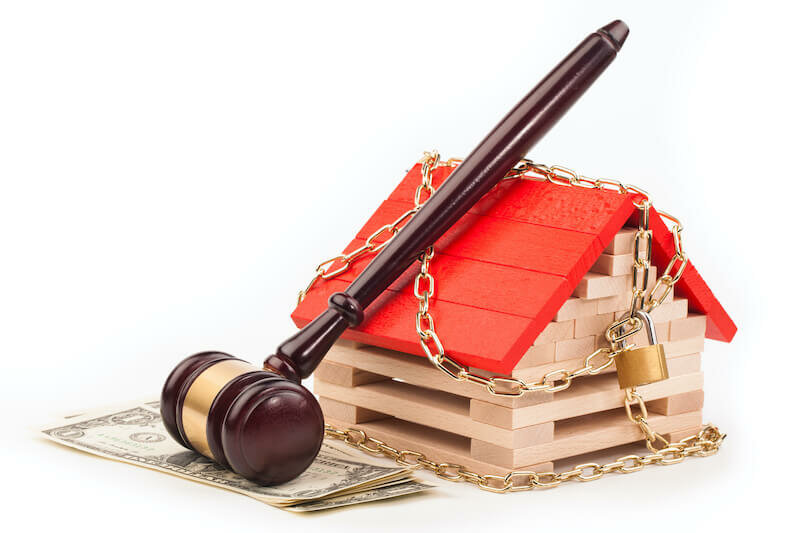Property taxes are the thief in the night, the one thing that often sneaks up on you, especially when you’re a new homebuyer. What’s more, property taxes in Minnesota are going to increase by an average of 4.5% this year, a steep increase from the 2.1% increase in 2021.
With the economy in such flux and the job market less stable than ever, it can be easy to fall into debt through no fault of your own. Still, even in hard times, you are responsible for your property tax and any ordinances that apply to you.
So what are your options if you are unable to keep up with your property taxes and have exhausted all of your other options? What accessibility is there for homeowners? Before we figure that out, let’s take a deeper look at how property taxes work in the State of Minnesota and what can happen when you don’t pay them.

The Minnesota Property Tax System Overview
Minnesota property taxes are generally administered at the county level, and you can get more detailed information about your taxes from the Minnesota Department of Revenue. If you own real property in Minnesota, your tax rate will generally be based on the value of your property, and the taxes you pay help fund state and community services, like schools, libraries, and parks.
Each year, local governments will set a levy, or budget, to figure out how much money they need to raise from property taxes, based on funding needs and revenue from other sources. Then, properties are placed in different classifications to determine the amount of tax owed.
By January 2nd of each year, a county assessor will perform assessments to estimate the appraised value (EMV) of your property, which is adjusted for any deferments, exclusions, or reductions based on the market value (TMV) of your property.
In general, how much tax you owe on each property will depend on:
- The local budget and tax calculations based on funding needs
- The value and use (homestead, apartment, cabin, etc.) of the property
- Any tax credits or programs that may reduce your rate
- Additional school or state property taxes that only apply to certain properties.
If you want to figure out how much you will owe in property taxes, you can use this handy calculator, which can help you get a jump on figuring out if you are at any risk of a lien or your taxes becoming delinquent.
Minnesota Property Tax Liens
What are property tax liens? A state tax lien is a legal claim that the state-county board can file if you owe the government taxes and can’t pay it off promptly. These liens allow the government to seize your property to compensate for a debt owed. Once you pay off your debt, the property will be released back to you. It’s not just failure to pay real estate taxes that can lead to a lien; owing federal or state income tax can also result in a lien being placed on your property.
The state can file a lien on various types of property, including:
- Land
- Homes or buildings attached to said land
- Vehicles
- Furniture
- Boats
- Collectibles or other personal items of value
These can all become tax-forfeited property. While liens are not reported to credit bureaus, they are public records, which means that anyone can find out if your property has a lien with a quick google lien search. If you do not pay your debt, the lien will stay on your property, and eventually, the state may choose to sell it to make up the debt, which often leads to mortgage foreclosure. Many people buy foreclosed houses with property tax exemptions as investment opportunities, as they are significantly cheaper than buying property at full price.
Personal Liability for Property Tax Liens in Minnesota
You are personally liable for property tax liens in Minnesota, whether for personal property or commercial space. If the property is titled to you as an individual, you, as the taxpayer, are liable. If the property is titled to an entity, that entity is liable. But what does that mean for you as part of that entity?
Minnesota will assess whether you are liable for an entity’s property tax if you are a:
- Director
- Manager
- Treasurer or financial secretary
- Accountant or bookkeeper
- You supervise other employees who do duties associated with the above jobs or related to the monetary aspects of the business in general
If you have any of these positions at a business whose property has a lien, you may be found liable for that debt. However, if you file for bankruptcy, a district court at your local government center may discharge the lien.

What Happens if You Don’t Pay Property Taxes in Minnesota
So what actually happens if you don’t pay your property taxes in Minnesota and a lien is filed? If you don’t pay your property taxes to make up the lien, the state can eventually foreclose on your property and sell it at a public auction. Once a lien is filed, you’ll have a specific redemption period to pay back the tax. But because your property is essentially collateral for the debt you owe, if the lien on the property does not force you to pay your debt, your property is forfeited to the state.
In Minnesota, the property tax forfeiture process typically starts on January 1st and finishes on the second Monday in May. On the first business day in January, any unpaid property taxes from the previous year will become “delinquent,” and the state will take out a lien for that amount. On the second Monday in May, the auditor will “bid in for the state” with the total amount owed, including interest and any penalties, which begins the redemption period.
What is a redemption period? By Minnesota statutes, this is typically a time frame of around three years where you have the chance to pay off the delinquent taxes, reclaiming it to your ownership. You can only do this by paying off the entire tax amount, and if you can’t do so by the end of the redemption period, the state gets the title to your home and can then foreclose on you and sell it as they see fit.
What Are Your Options?
Sometimes, your best option is to sell your property with the lien filing, so you can use the money you make to pay off the debt. While this is obviously not ideal, when the alternative is waiting for the state to seize it and then not getting any revenue, the choice is clear.
Chances are that if you are in a position where there is a lien on your home, and you are unable to pay back the debt, you are going through not only a tough financial time but a tough emotional time as well. You’re likely extremely busy trying to make ends meet and don’t have time to navigate the real estate market.
In this case, selling a home for cash is an easy and simple option that lets you choose when you leave your home and lets the company buying your home deal with all the rest. If you’re looking for responsible, reliable, and caring people to sell your home for you, look no further than Mill City home buyers.
Mill City offers many of the same options that other companies that buy houses in Minnesota do. However, unlike others, their main goal is to help you rather than make money. No matter what the lien on your property is and what state your home is in, we buy houses in Minneapolis with no fees or commissions, guaranteed.
